B.S. Shivananda - The Indian Fischer - Part I
Who is the Indian Fischer you might ask? Is it Vishy Anand? Well Anand is now a brand in himself, and has surpassed the American Genius in rating, number of world titles and longevity, so surely not him! Who else then? Well, he is a person who hailed from a remote village in Karnataka, who began playing chess towards the end of his teenage years and became one of the strongest players of Indian chess with a live Elo rating of 2486 in 2006. This is the story of B.S. Shivananda, who faced all the vicissitudes of life to emerge as an inspirational figure in the country. Tanmay Srinath brings forth the inspiring, and at times heart wrenching story of the genius in this three-part series of interviews.
I would like to begin this interview with a personal note. Starting chess at the relatively late age of 14, I never had an idea about players who had succeeded in their careers before my entry into chess. So for me, meeting IM Shivananda, or sir as I call him, was a new world in itself. Here was a player (now super successful coach!) who without any formal coaching managed to beat some of the best Indian players of the time, that too with financial constraints and personal difficulties.
For me being a journalist is not just writing good articles and covering top tournaments - it is bringing to the forefront stories like this - stories of grit, determination - stories that show you that your background and status are never really important components of your rise to the top. Shivananda, as I have known him for the last 5 years, is one of the most under-rated chess players in Indian chess, and not many know the man behind the chaos at the board he more often than not creates and triumphs in! So, without much ado, let me present to you one of the most creative chess players I have had the pleasure of meeting.

Interview with the Indian Fischer - B.S. Shivananda
Tanmay Srinath (TS): Could you start by telling us a bit about your early life?
B.S. Shivananda (BSS): I was born and brought up in one of the remotest areas of Karnataka (Beleyur) located in the scenic Western Ghats, with a lot of greenery around. Considering the fact that the place was peaceful and devoid of crowds, I consider myself lucky to have grown up there. We have only 40 houses in our village, and cultured people, around 180 to 200 of them, enough space, big road and all such things. In my childhood I think I played most of the sports possible! Rather than studying, I concentrated on playing one or the other sport every time. So I think this made me passionate about sports.
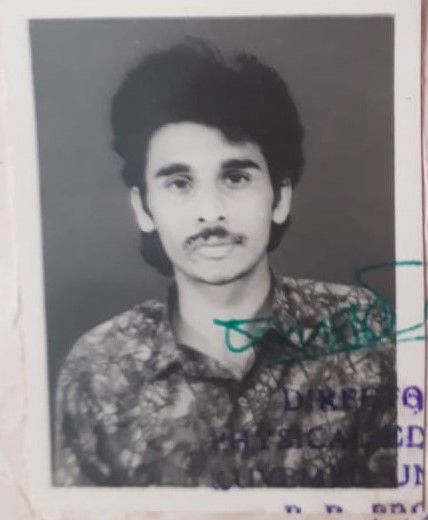
TS: So, when you compare your childhood to that of an average child today, in 2020, what would you say – you think you think you were having a harsh life then, or happy, that your life is devoid of excessive technology use?
BSS : At that time I didn’t think about all these things, but now when I go back in my memory, I feel that I had a great childhood.
I have great parents – my father Srinivas was a headmaster, the principal of a well known high school, and also a farmer (agriculturalist) there. We have some medium level farm there, and most of our neighbours are either agriculturalists or horticulturalists. So all of them were like...from the same culture, so today when I go back in my memory my childhood was one of the best phases of my life.
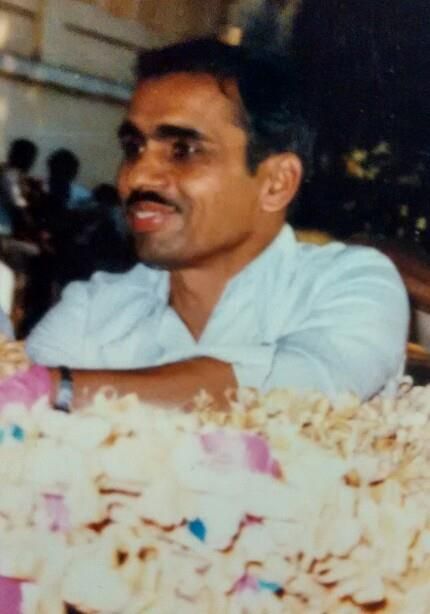
TS : I’ve heard this a lot, and you know, many people think that you own a lot of land in your village. Can you clarify this for us?
BSS : My village has a lot of land (smiles). I myself belong to an upper middle class family. We own some medium level lands there.
TS : So tell us a bit more about your family – your parents and siblings.
BSS : My father was a headmaster, and a mathematics teacher, a well known mathematics teacher. My mother is a housewife, and I have an elder sister. She is a professor of Mathematics in an engineering college in Pune nowadays.
TS : How influential were your parents in your choices and decisions, especially at the beginning?
BSS : Highly influential. Of course when I was young I had to take the support of my parents. My parents are educated, and they were neither too strict nor too liberal. They gave me a proper structured approach from my childhood. So that was very useful for me later in my life.
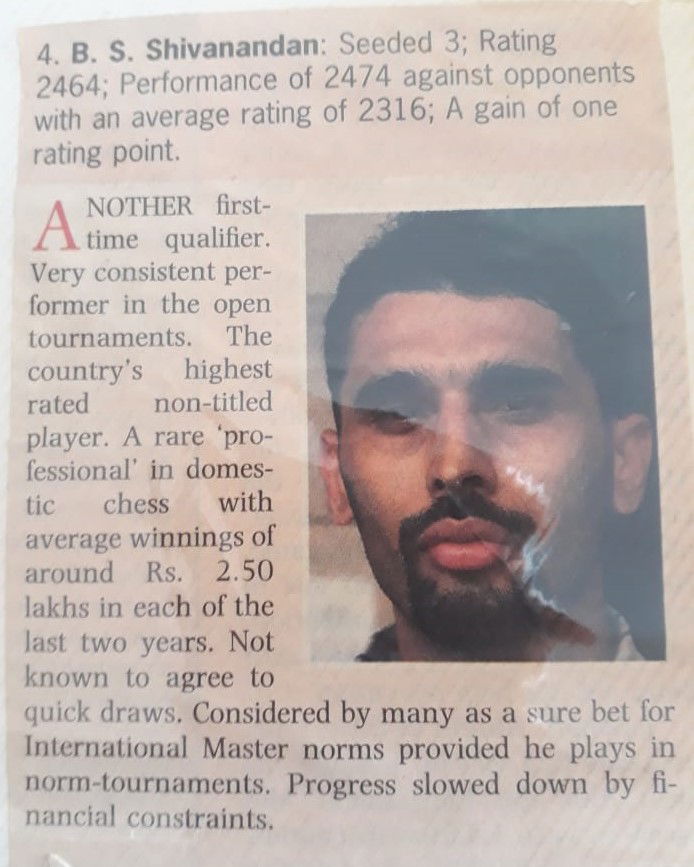
TS : I’ve heard that you are an avid reader as well. Could you tell us what you read, and how reading has helped you become what you are today?
BSS : This is for sure! We had a small, you can say medium sized library at home, and we had books about each and everything in the world (!). I don’t know how many books I’ve read in my childhood, maybe more than 1000, 2000? At least 2000 books...
TS : Wow!
BSS : That too multiple times. They were biographies of all these great people – scientists, philosophers, sports people and all those big people who achieved big things in life. So this reading thing made me aware of the big world outside, although I used to stay in a small village. That is why I set a bigger goal for myself, taking inspiration from great people who did big things coming from a modest background. One of my neighbours was a Karnataka State U-18 Carrom Champion. These things inspired me a lot. For this I should be thankful to my papa (father). Now he is not there – he died around 20 years back.
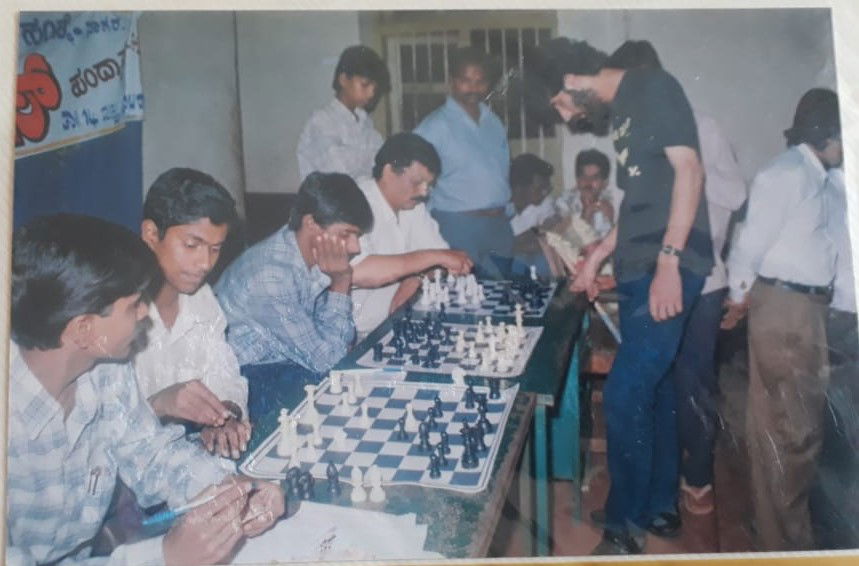
TS: Good to hear that old school methods like reading books are so effective! What were your hobbies in your teens?
BSS: Well, I was basically good at studies, being the son of a teacher it was necessary to be good at it. Mathematics was my forte, and along with this I was participating in all sorts of sporting things. Our village used to have an annual day for sports. So our village people were like very enthusiastic towards sports – we used to play cricket, tennis, table tennis, chess, running race – whatever thing you mention we had it there!
We also had a very big ground next to our village. So, there was a real sporting culture. Educationally speaking our village was reasonable – most of them were well educated, so this background has really helped me a lot.
TS: Since you are a famous chess player, I would like to ask how and when you got into chess, and why as well.
BSS: I was basically a high-jumper. High jump was my favourite sport before chess. I was very much interested in high jump, and I went to state level in it – I represented my district when I was in 10th Standard. But, when I was practising before that event , where I qualified from my district – two people used to qualify from each district – I broke my arm. Then my parents told me that this high jump thing is a little bit risky, and asked me to choose another sport.
I didn’t want to leave high jump – my broken arm got healed in 1 or 2 months. But...my parents insisted that I give up. I then concentrated on other sports, where there is little less chance of getting injuries. I knew chess since I was 6 years old only - It was of course one of the games taught by my girl cousins and parents. but never became a professional till the age of...say 15-16 years.
Chess came naturally to me because of 3 things. Chess is a combination of arts, science and sports they say. I had an interest in all these 3 things when I was young. Science – I was always strong in mathematics and passionate about it as well – my papa’s background is mathematics as well. I was always interested in numbers and studying all types of numbers. Sports wise I already told you I was quite strong – competitive and learnt many sports – played in many sorts of tournaments also. The artistic thing was also there – I used to be a poet (smiles). By the ages of 14, 15 and 16 I wrote a collection of poems. So I had an artistic direction as well, so chess came naturally to me.
Basically, the motivation, or the point I took chess seriously was... I think....some World Championship was going on. I used to read a magazine each and every day – some English magazine used to come to our village, and they used to put that e4 e5 chess notation. I never knew anything about this – we never had a chess coach, a chess academy – nothing was there. None of us in the village knew chess notation. However, seeing the combination of the numbers and letters, me and my sister thought we’ll solve these puzzles - We are avid mathematics students, so we slowly started solving this e4 e5 things. Only one thing we didn’t understand was what 0-0 and 0-0-0 was – the rest was found out by us in 10-15 minutes. We thought that each time this (0-0 or 0-0-0) came up either White or Black passed a move! (smiles)
I soon found out that chess had a strong background and was entertaining – the logic attracted me basically, trying to find the best idea in the given situation – which is applicable in life as well. This logical thing attracted me most and I thus became a chess player.
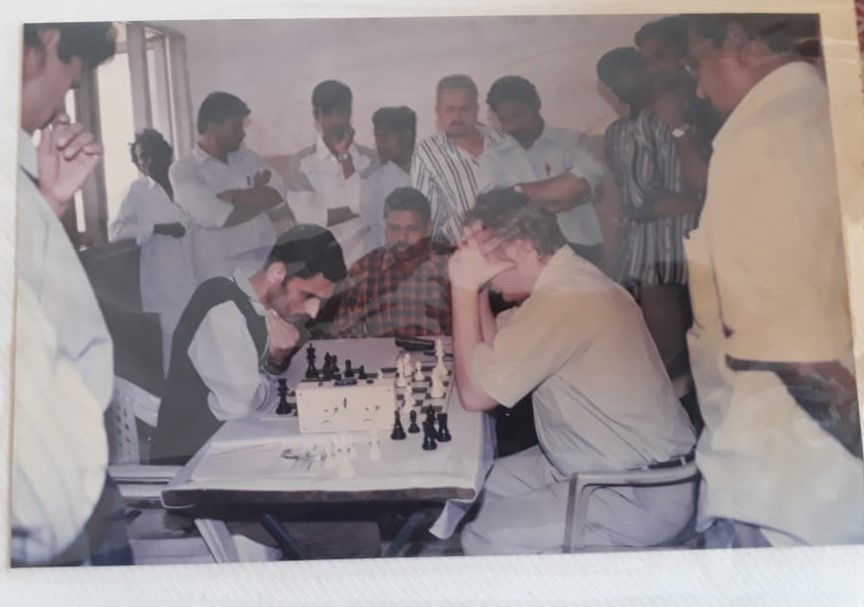
TS: Previously in one of your sessions you had mentioned 5 qualities required to be a successful chess player. Could you name them?
BSS: Chess is a highly difficult sport – mental sport if you ask me. You need many qualities to become a successful chess player. It is easy to become a cricketer – you have a bat, the bowler is bowling and you just need to middle the ball with your bat.
But, chess has so many different things right? It is a highly theoretical game – you need to remember theory, and recall them at the right time, and you also need to concentrate all the time. If you ask me 5 things, the 1st thing that comes to mind is logical thinking – if you can’t think logically you can’t become a chess player. 2nd thing – you need to have strong calculating ability – if you are mathematically stronger it will be helpful in your journey as a chess player. 3rd thing – of course you should have a strong memory power – to keep the calculations in your mind. Some people wrongly assume this quality to be the most important one, but if you ask me this is the 3rd or 4th most important quality. 4th thing, if you ask me, is having a creative angle. If you are imaginative enough, it helps you in chess. 5th thing – you must be competitive – chess is a sport, and unless you are competitive you can never become one of the best.
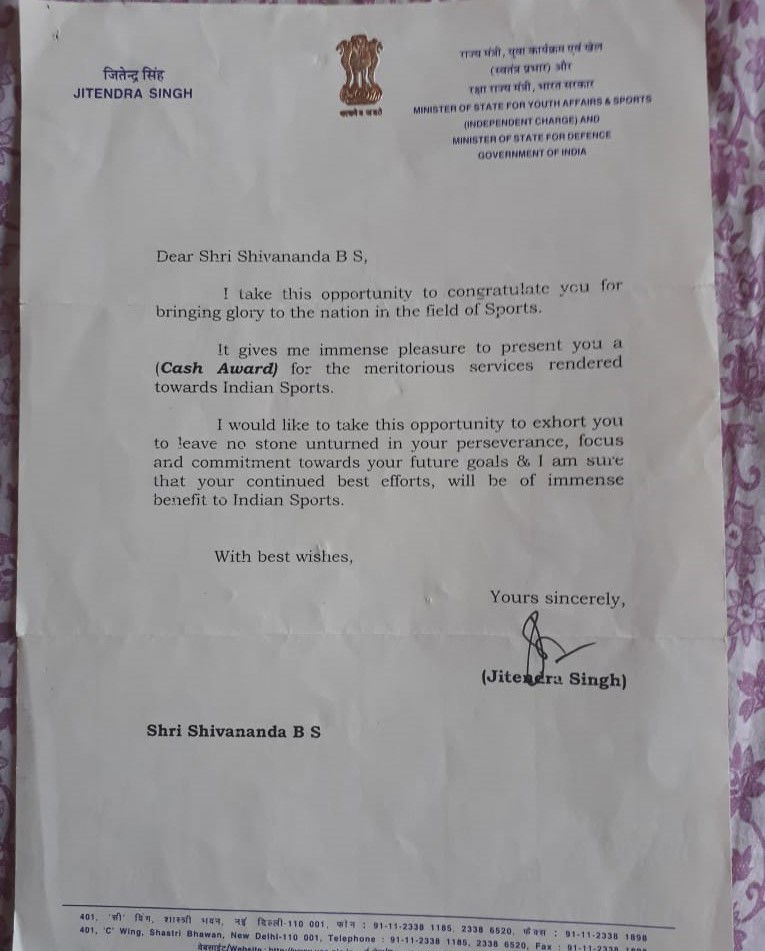
TS: Your father died just as you began to take chess seriously. Take us through your mind space at that time.
BSS: When I was in my college, suddenly my father was diagnosed with 4th stage Kidney Cancer. He was a very healthy person with no bad habits. At that time there was no cure for 4th stage Kidney Cancer. We went to Bangalore, and stayed there for two months at the Cancer Hospital. After one month the doctor said that there was no cure for this – the disease had crossed all limits.
The doctor then advised us to take him back to the village, where he could peacefully spend his last days, and told us he had 3 months to live. It was a heartbreaking event – better not to think about it too many times. We knew our father was going to die, but we didn’t tell anyone. However, seeing his condition most of them had already guessed it. Those 3 months were hell – we knew what was happening and there was nothing we could do about it.
3 months passed and he died in our village. For the next two years I was blank in life – blank in mind. We lost many things – not only an emotional backup, but also a social one. However, we did receive some compassion from our neighbours. Other than that, it was a tough phase in life.
TS: How hard was it to make decisions without your father being there for you?
BSS: It was not easy – it was a trial and error method. I did do many things at that time – I played cricket, and went some distance in table tennis. My mother was there for me – despite being a home maker she knew many things about life, so she gave me some directions. My mother only accompanied me twice to tournaments – I went to almost all of them on my own.
Being from a village had made me a tough person. Having been inspired by my father to do big things I was ready to take on challenges. It is no exaggeration to say that I am a brave person, who was willing to take risks – not by harming others, and am not a person who will bend down and look weak. I also decided that once my father died without any fault of his I will do something in my life that will make my father proud of me, and people should recognise that Mr.Srinivas’ son has done all these things because of Mr. Srinivas himself.
TS: Well, you’ve definitely made him proud! Being the sole bread-winner for your family (I suppose), how hard was it for you?
BSS: Well, I can’t tell that I was the sole bread winner for my family – we had some land - the Arekanad farm, and still have. My sister was a lecturer at a college. Whenever I needed money I approached my mother and sister, and without their support I had zero chance of going anywhere in life.
TS: You made a mark on chess relatively late in your life – you started at the age of 18. Do you still think it is possible to make a mark in chess starting late, or is it as Anand says – “GM at a young age or nothing”?
BSS: Anand is my favourite player – I started playing chess because of him. In fact, our names sound similar – Vishy Anand and Shiv Anand! (smiles). However, on this point I want to disagree with Anand – to achieve something in life age should never be a hurdle. If you are motivated enough, age becomes just a number.
I did start relatively late at 16-17, but by then I was already a decent player – my initial rating was 2220. Starting late didn’t affect me – I always feel young in my mind, so it has not been an issue for me.
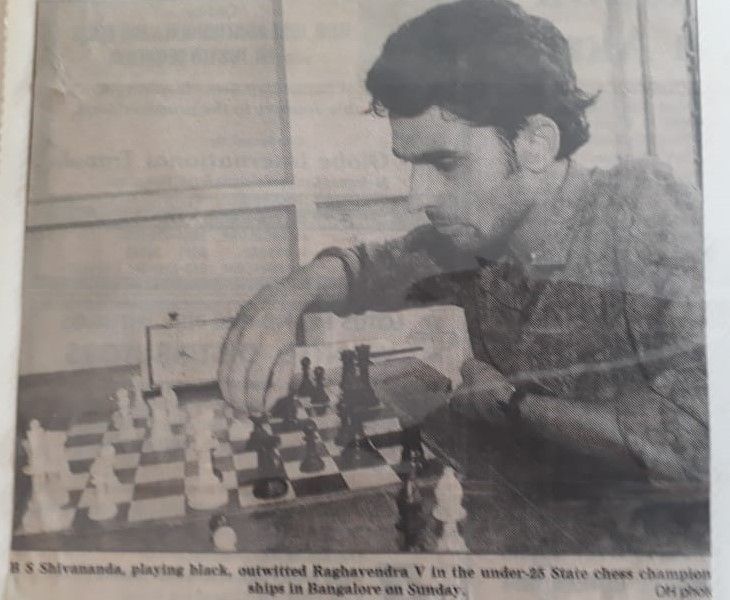
TS: So, it is still possible then, to become a GM or a 2700+ player starting late, say 14 or 15?
BSS: Perfectly possible! City children have the backup of many things – big academies, big coaches, any amount of money is available, they can travel anywhere and people who can provide emotional support can accompany them. In such a case you can make a mark early. It is possible to start late and succeed, but motivation is crucial to your eventual success.
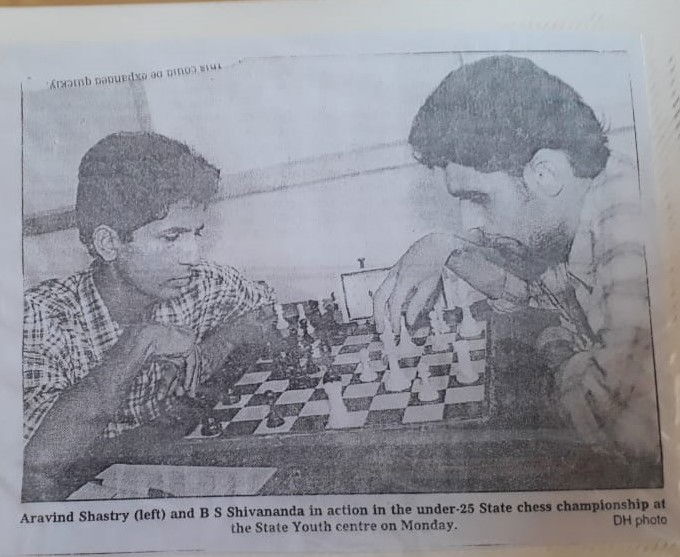
TS: Coming from a remote background, how hard was it to make people take you seriously?
BSS: I hardly try to impress people! (smiles) I know who I am, so I don’t really care what the other person thinks. I basically try to live a life where I don’t harm anyone but still succeed to a great extent. Rather than focusing on what people think about me I started focusing on what I can do to improve my game.
In the 3 years after my fathers death I worked for 10-12 hours everyday, and didn’t attend any functions or parties. I would mainly practise on my own, with a computer, and taking a board and playing both the sides. With chess books as my companion I eventually became stronger. Even after I became a 2400+ player I continued to train this way because of higher ambitions.
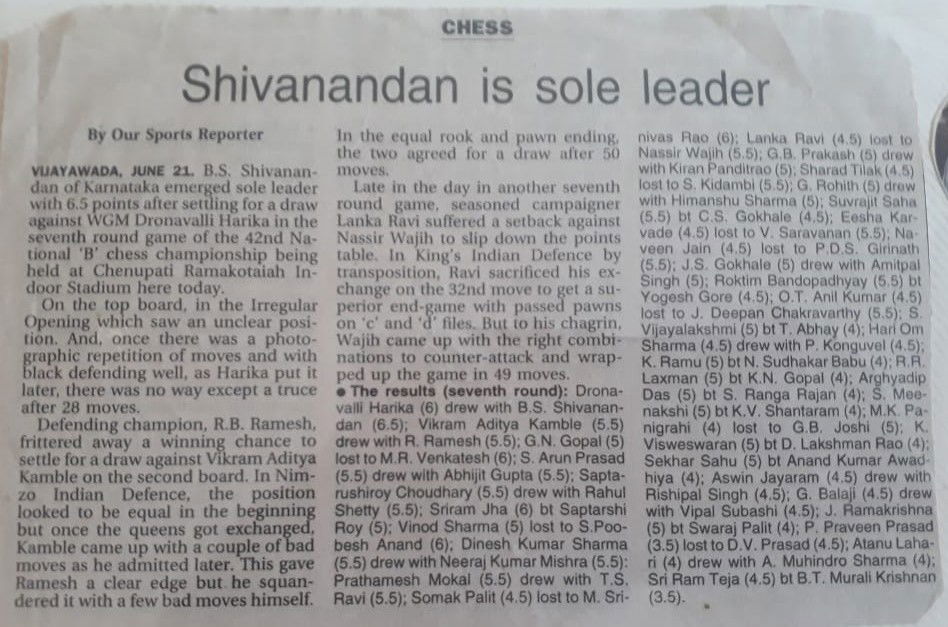
TS: You’ve never had world class facilities. How did you overcome these external factors?
BSS: World class? I had village class facilities, no question of taluk level also! (laughs). There were no decent chess players in our village. It was in fact not a hindrance for me because I focused on improvement rather than trying to find a coach here and there. Since I didn’t have a coach, I had to self learn, but again the problem was the excess amount of time that was taken and the trial and error nature of it all. However, it did have one great advantage – learning things on my own made me self reliant. Whatever position came up on the board I was able to manage, because rather than memorising things I had used my own brain and tried to understand what exactly happened.
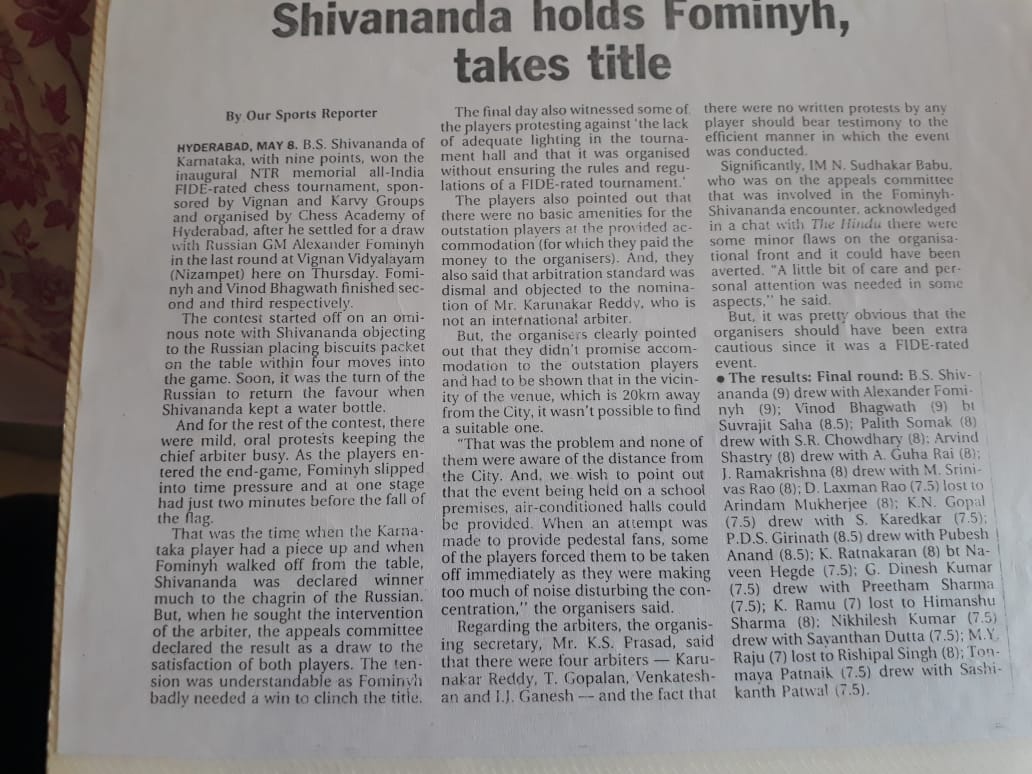
This approach was very useful in the sense that I didn’t have to rely on any coach to teach me something – If there is something I don’t know it means I haven’t worked on it. That is how I became strong practically – technically and theoretically I wasn’t the best, but over the board I was able to solve many problems effectively.
TS: Take us through your training regimen at that time.
BSS: There was nothing very specific about my training – I liked the game of chess, and I had a computer with a broadband connection, so I used to play a lot on Playchess. I think I reached 2925 in Blitz on playchess.com – it was 15 years back. My IDs were Forest Tiger and Roaming Knight.
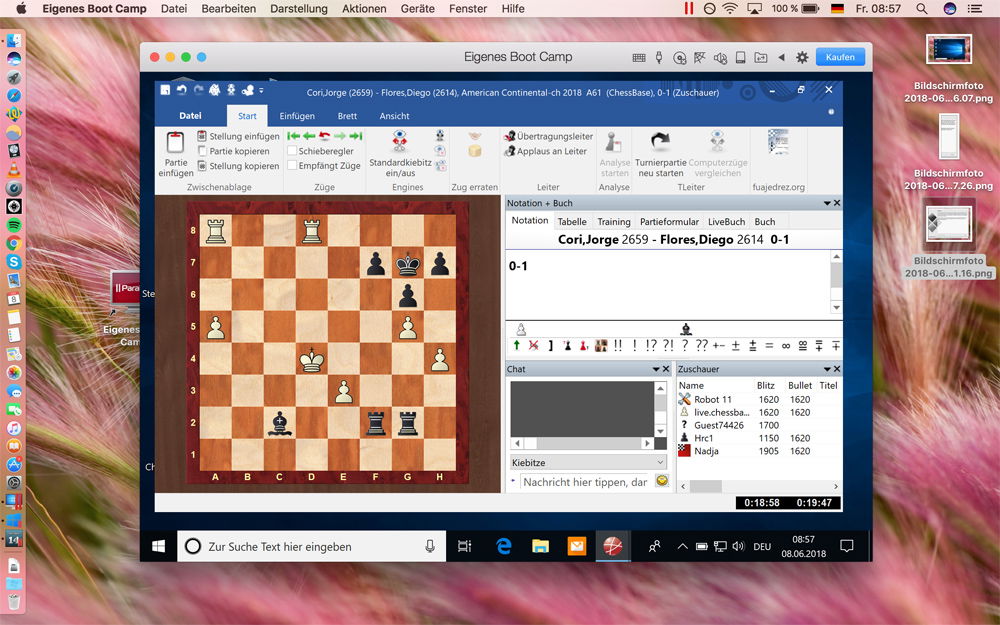
Using these 2 accounts I crossed 2800 quite easily, and reached my peak of 2925. My basic routine at that time was playing for 5-6 hours on Playchess – I had decided to take a small risk and invest in a very good computer and a good broadband connection. Sometimes I would analyse those games, but many times I just used to play until 1 a.m. in the night!
Apart from this I also went through a few good books – Bobby Fischer's games and books inspired me a lot – I found them appealing because of their accuracy. My first book was Bobby Fischer’s 800 games – the book had no annotations, and contained all the games Fischer had played in his career.
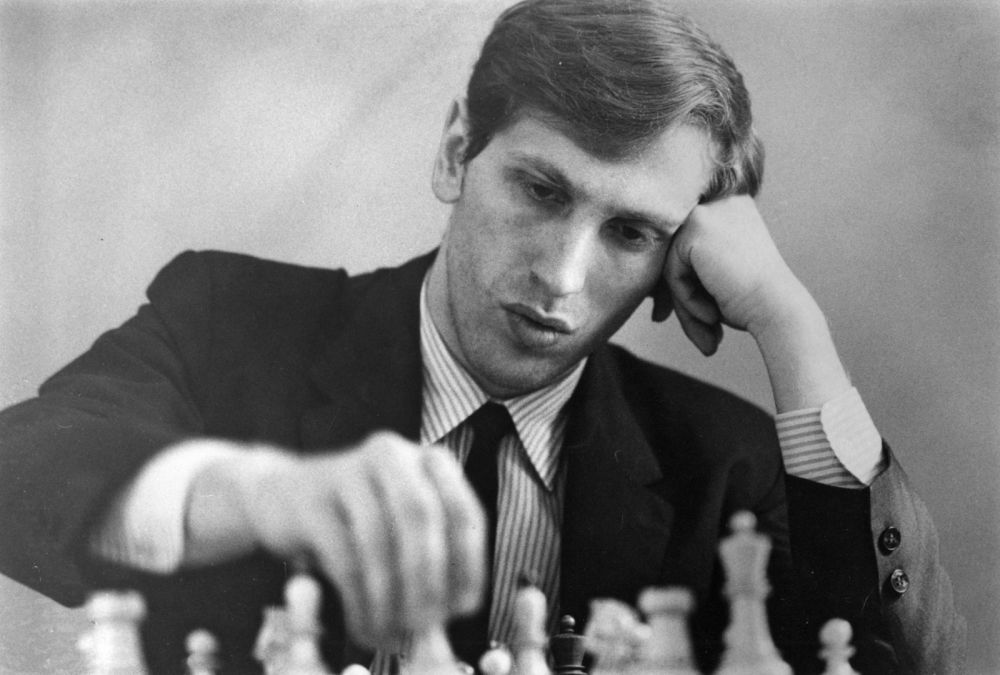
Also, Viswananthan Anand’s achievements at the time were extraordinary, so I used to check up his games once in a while in magazines. It was not just his exploits that inspired me – he is one of the nicest personalities and one of the greatest sportspersons India has produced, so this made me look at his games. I think in all Anand and Fischer were quite important for me at that time.
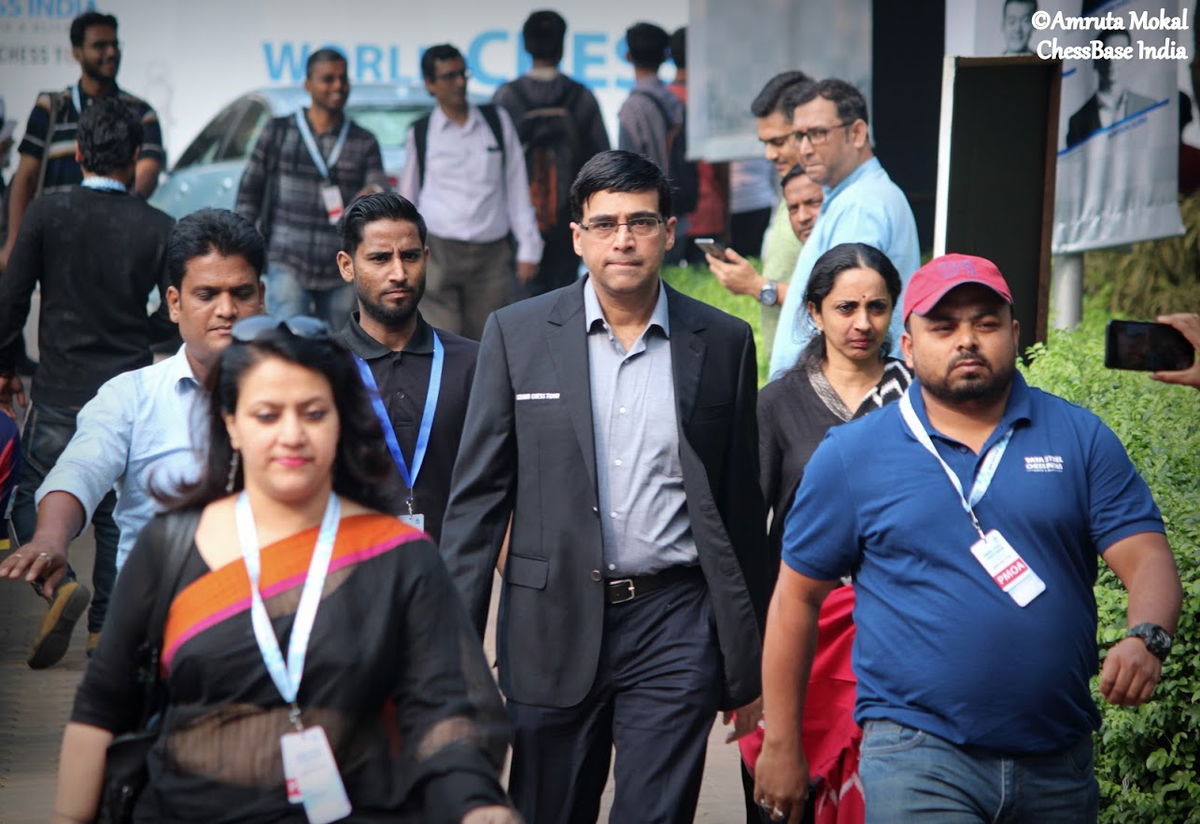
TS: What were some of the books you used that helped you to break the IM barrier?
BSS: Once I was beyond a certain rating of 2300, I started purchasing a lot of books. I needed some theoretical knowledge – so it was time to do so. Whenever I came back from a tournament with a prize, which was most of the time, I invested 25% of that amount to purchase books or DVDs. Whenever I used to enter a tournament, they used to ask me what books I needed and then they would keep them there for sale. Once the tournament was over I would buy them. I read almost all the important books at that time that were practically available in India, not once but twice or thrice.
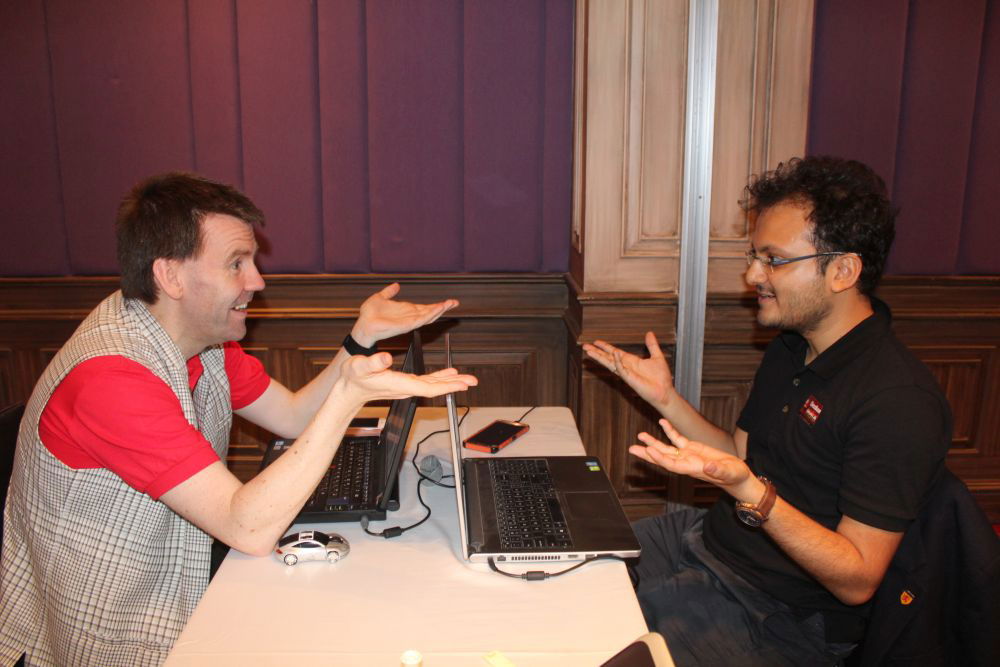
I never read letter to letter or word to word – I went with smart reading - only taking what things were required. Being from an educational background speed reading was perfectly possible for me – it was taught to me in my childhood.
TS: Now we come to the interesting and fascinating things of your life. I’ve heard that your first name on the FIDE list was B S Sivanandan. Could you tell us the story behind it?
BSS: Actually, I’ve got 3 names! Ashwin Kumar B S was my original name, and up to the age of 12 I was called so. Even today if you go to my village and ask for Shivananda’s home, they will ask, “Who Shivananda?” , but if you ask for Ashwin Kumar’s place they will show you straight away. At the age of 12 my grandmother for some reason changed my name to Shivananda – Shivananda was the correct pronunciation.
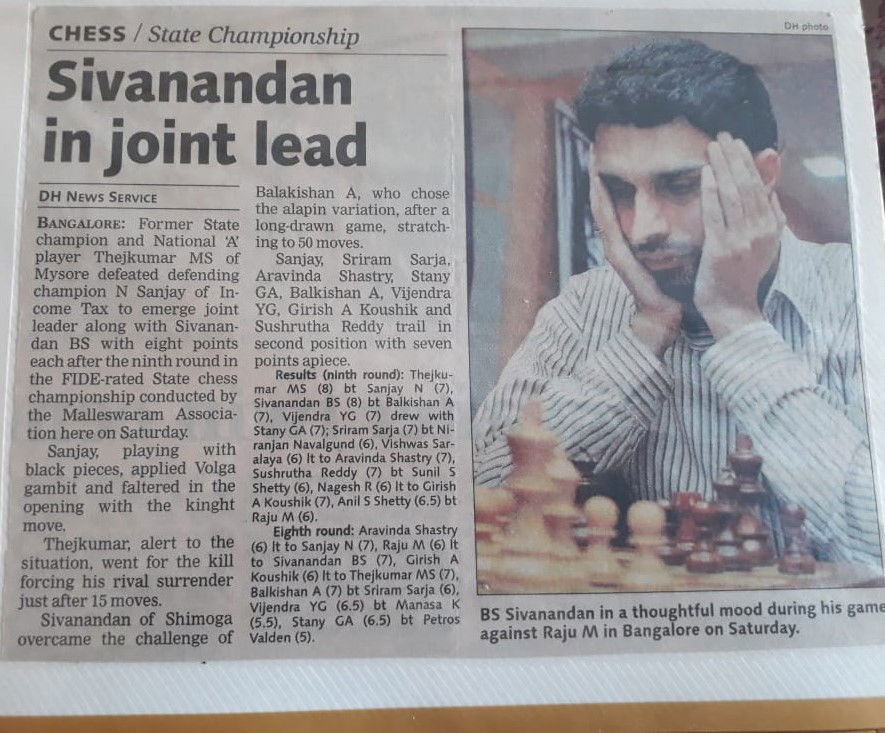
But, what happened was that I played my 1st tournament in Chennai – the National Challengers. Kameswaran, India’s 1st International Arbiter, was the arbiter of that tournament. I had travelled alone, but later on I was joined by a friend from a neighbouring city. So, when Kameswaran asked for my name, I said Shivananda, having absolutely no idea of the formalities, being an out and out village boy! This was my 1st time in Chennai, and the only other time I visited a city was our own Bangalore 2-3 times. I don’t know what he understood - he was a nice man, he was fully nice to me throughout the tournament. I feel that he had a liking for me, and he then wrote my name as Sivanandan. My mother tongue is Kannada , but in Tamil, which was the local language spoken there, the letter ‘h’doesn't exist. So he removed the ‘h’ and added ‘n’ at the end.
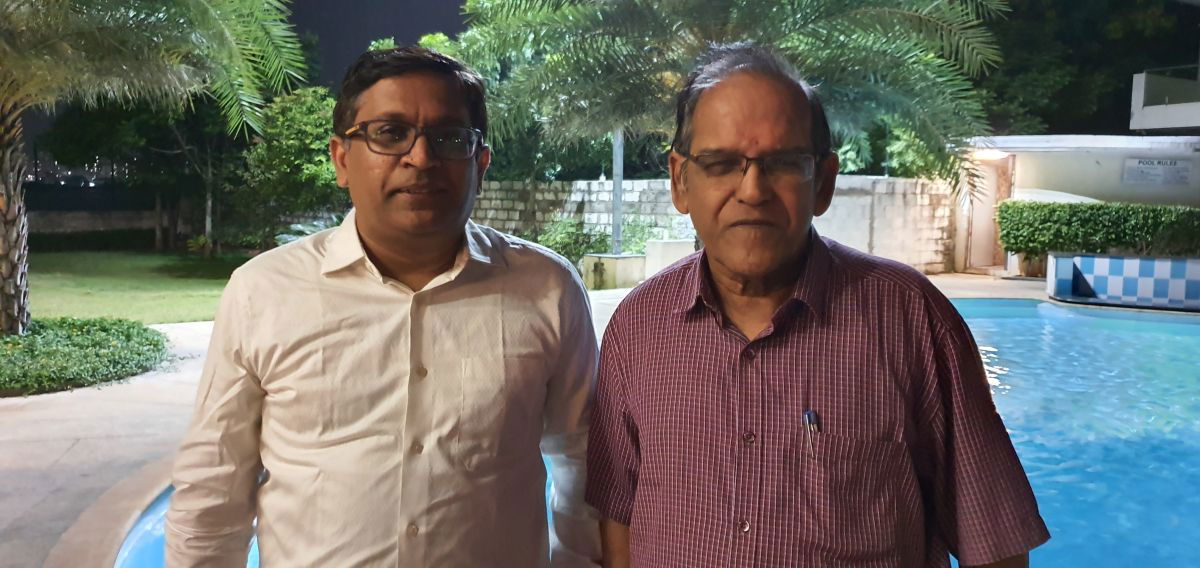
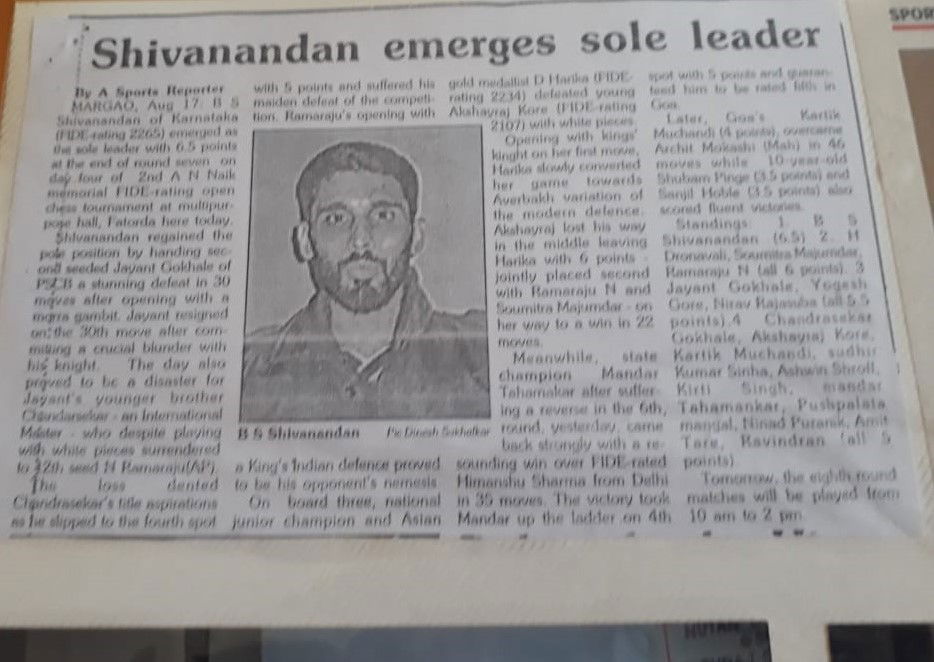
I noticed this after 1 or 2 months, and thought that the name Sivanandan was more stylish than Shivananda, so I decided to keep it. Things came to a certain point where I had to create a passport and other things, so I requested AICF to change my name, stating that my original name was Shivananda. So for those 6-7 years all my games were recorded under Sivanandan – in the Mega Database you will find my games under both names.
TS: I’ve seen your rating graph – they have been full of ups and downs. How did you deal with them at the time?
BSS: There was no person to guide me in chess tournaments. Anup Deshmukh from Nagpur, who played for the Indian Olympiad team, is perhaps the only one. I met him very late at the age of 25. My rating was above 2400 at that point, but I stayed with him during tournaments. Great person, absolutely great person – he never treated me as a junior – he treated me as an equal and gave me many valuable advices – play this tournament, play that tournament etc.
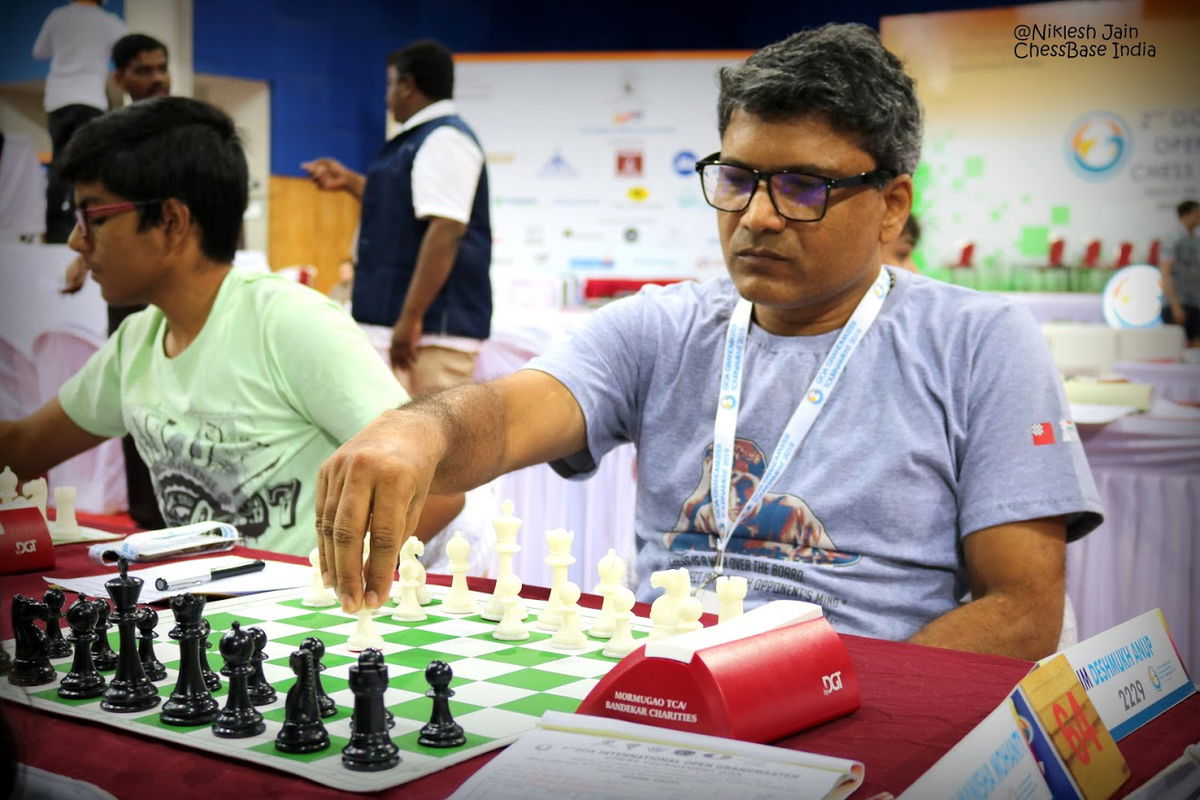
Other than him I was basically alone, so all the decision making was done by me. Some of these decisions went wrong – there was no proper selections of tournaments – I used to play anything and everything. There was one more issue most people don’t know – participating in a tournament itself was a big task for me!
From my village I needed to catch a bus to the nearest taluk center called Sagar, from Sagar I needed to catch a bus to Shivmogga district, and from there either to Bangalore or Goa and from there I could go to the tournament! While coming back it was the same 4 step process! So, going to the tournament itself was a herculean task for me – I used to take at least one day to reach the venue! Sometimes, I felt as if I had already achieved something when I reached the tournament! In those events I played badly. I used to lose some enthusiasm before the tournament itself due to the hectic travelling.
TS: With a low K-Factor, you jumped from 2280 to 2396 in 3 months! How did you maintain your consistency?
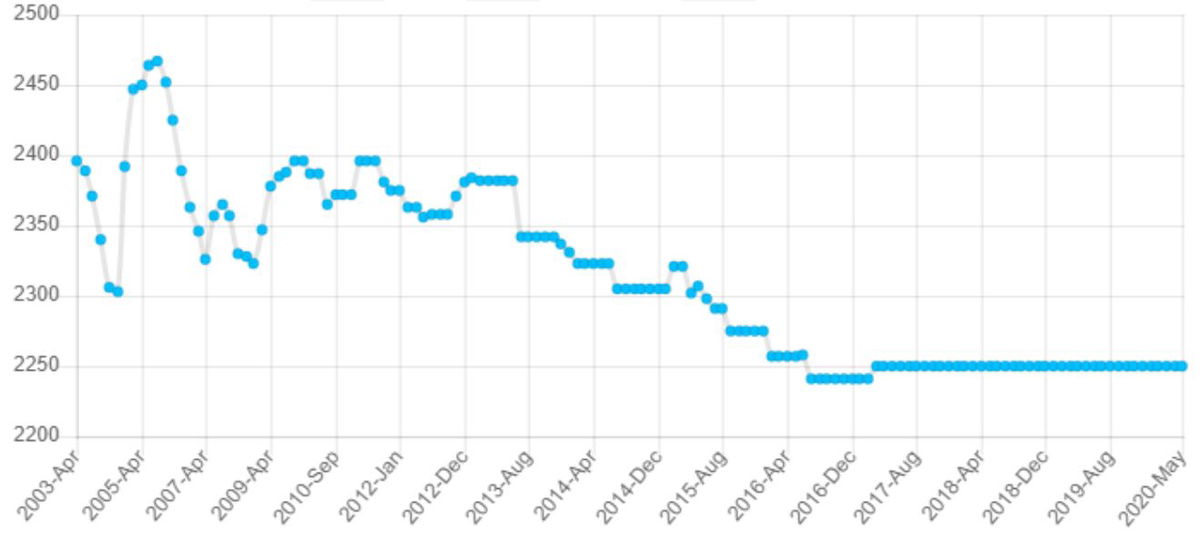
BSS: Intelligence and chess skills were (still are!) present – I topped my district in my 7th standard public exams. I didn’t concentrate on k-factor points. I just concentrated on playing the best move, and all those rating points ended up coming on their own!
TS: After all these gains the next 15 months didn’t go as planned – you lost a lot of rating. However, soon you were back to getting good results again. What changes did you make at that time?
BSS: Basically we need to analyse our own games if we want to improve. By watching – meaning analysing and observing other strong player’s games and learning new things, we will improve by only 50%. The other 50% comes from inside only. We need to carefully analyse our own games, see where we have gone wrong – we can appreciate ourselves if we have played good moves. I also used to analyse the games after each day during the tournament, but only for a half hour – detailed analysis was done one I came back.
TS: Could you mention one major problem in your game that you corrected with this method?
BSS: I had many major defects! First of all there was no structured approach to chess. The endgame was my worst part – I played horribly in those positions. I used to reach winning positions against strong players, but once the endgame was reached I was either bored or unable to understand what to do, so I lost a lot of good games.
This problem persisted even when I reached 2400. I thought my endgame was probably 1900-2000 in strength. So I thought of improving endgame play once I realised this fault of mine. I went through a lot of endgame books. They were ok in giving me theoretical knowledge, but they were not enough for improvement. Hence, I decided to devise a plan of my own. I basically did two things – when I was alone I practiced with the computer having the starting position without queens. The second one was slightly risky, but it paid off for me eventually. Whenever I went to a tournament, since I was already 2300-2400 I would face weaker players in the first 3 rounds, and I knew that whatever I did in the game I would win. So, I deliberately exchanged my queen off as soon as possible and then tried to outplay them in those queenless middlegames or complicated endgames. I did win most of those games, but they were not easy wins. This experiment looks risky, as I was doing this in real tournament games with a lot at stake, but in the end this helped me catch up on my endgames.
TS: You peaked at 2467 in October 2005 right? Did you cross this rating at any point in your live rating?
BSS: 2467 is only my published peak, my peak Elo live was 2486, just 14 points shy of 2500. What happened was that in those times rating lists were published every 3 months. When I was 2467, many players advised me not to play in local tournaments, instead go abroad and play people of my strength. In local tournaments with such a high rating even if one wins a tournament and drops more than a point against lower rateds, his rating drops a lot. Sadly, I didn’t listen to them, and the exact same thing happened. When my live was 2486 I unnecessarily played two tournaments and lost around 34 points, so my rating on the next list dropped to 2452.
TS: I’ve heard that the Sangli Tournament organiser called you the Indian Fischer! That is some praise! Could you tell us the story behind it?
BSS: Bhau Saheb Padasalagikar is one of the kindest people I know. He is from Sangli. Sangli lies on the Karnataka – Maharastra Border and is around 9 hrs journey from my place. Since this was the nearest place where a standard tournament happened, I used to play there every year, and I got to know them well.
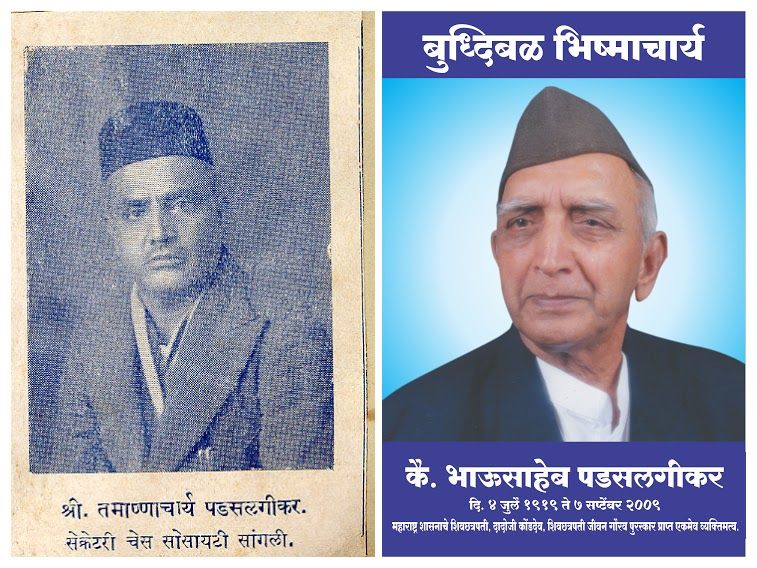
He (Bhau Saheb) was one of the biggest supporters of chess in India. He didn’t take any money for his effort – he was simply interested in chess promotion, being a lover of the game himself. There were 2 competitions taking place side by side in the same hall – a chess tournament and a wrestling tournament! I won this tournament 3-4 times and finished 2nd a lot of times as well. Since I dominated these tournaments and many others across India for around two years, he slightly exaggerated by calling me the Indian Fischer.
TS: Who’s style were you influenced by the most?
BSS: Fischer’s games I analysed when I was younger. His clear clean playing style without too many mistakes made a big impression on me. Anand’s games as well – he used to and still does play very well, but I feel these days he has become too defensive. Back in the day his initiative-based games of high accuracy inspired me, and I think that these two players have had a big impact on my playing style.
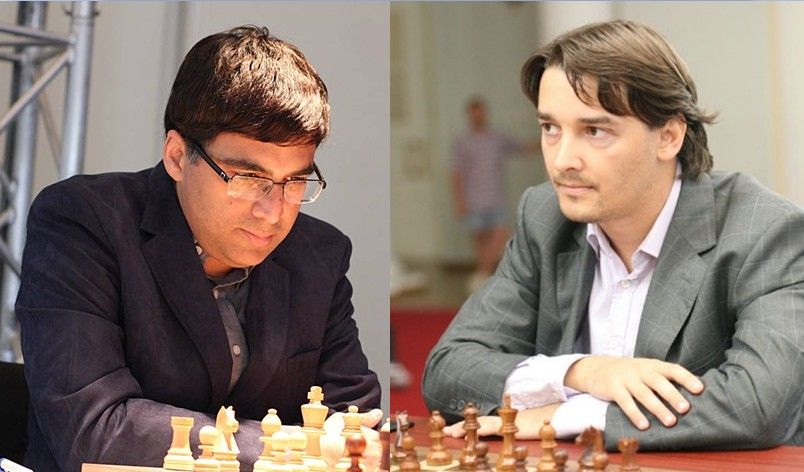
TS: What is the one important lesson you will take from this period?
BSS: If you ask me, patience is key. One’s life is balanced on patience – if he has patience he can do wonderful things. So I keep on telling youngsters to have patience and keep on working hard – the results will definitely come.
The Indian chess community on B.S. Shivananda
I also contacted quite a few people I know to find out what they had to say about Shivananda. Below are some of the memories they kindly shared with us. A big thanks to all these players! There will be more such instances in the upcoming parts.
Baskaran Adhiban - The Beast and one of the 5 Indians to cross 2700 elo : " I remember him as one of the most creative players I have faced."
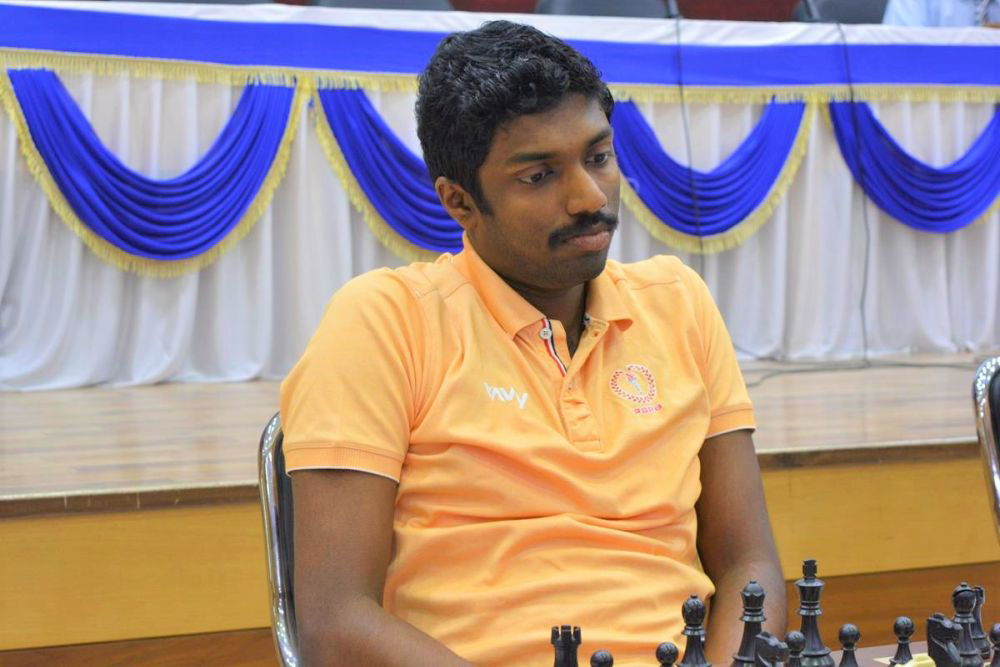
Sundarajan Kidambi - Indian GM and one of Shivananda's peers: "I remember Shivananda fondly as a brilliant original player and chess thinker! He was immersed in the game of chess during analysis and even otherwise during events which shows his passion for the game. He was 2470 back in 2006 National A, a very strong and under rated (in public opinion) player in Indian circuit. I might have got the numbers wrong, but I consider him to be one of the strongest Indian players at the time. One thing we need to understand is that 2470 in 2006 is like 2570 today!"
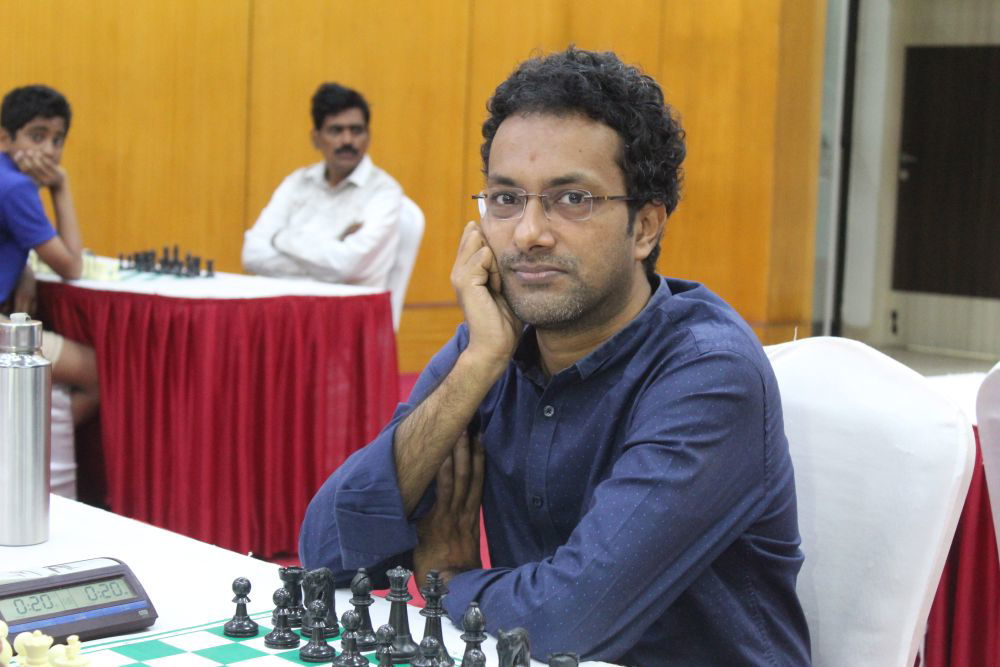
Shyam Sundar Mohanraj - India's 31st Grand Master and noted analyst: "Well, when I was a kid and I had just started to play chess, he was already a star player. He had a unique playing style and very unique opening choices. If I'm not wrong he used to play 1.e4 c5 2.b4!? with White and used to beat strong players. I admire his attacking skills and his handling of complicated positions. At times I felt his playing style is similar to Morozevich and he was quite good at blitz too. I always wonder why he stopped playing competitive chess as he was a strong candidate for becoming a GM. "
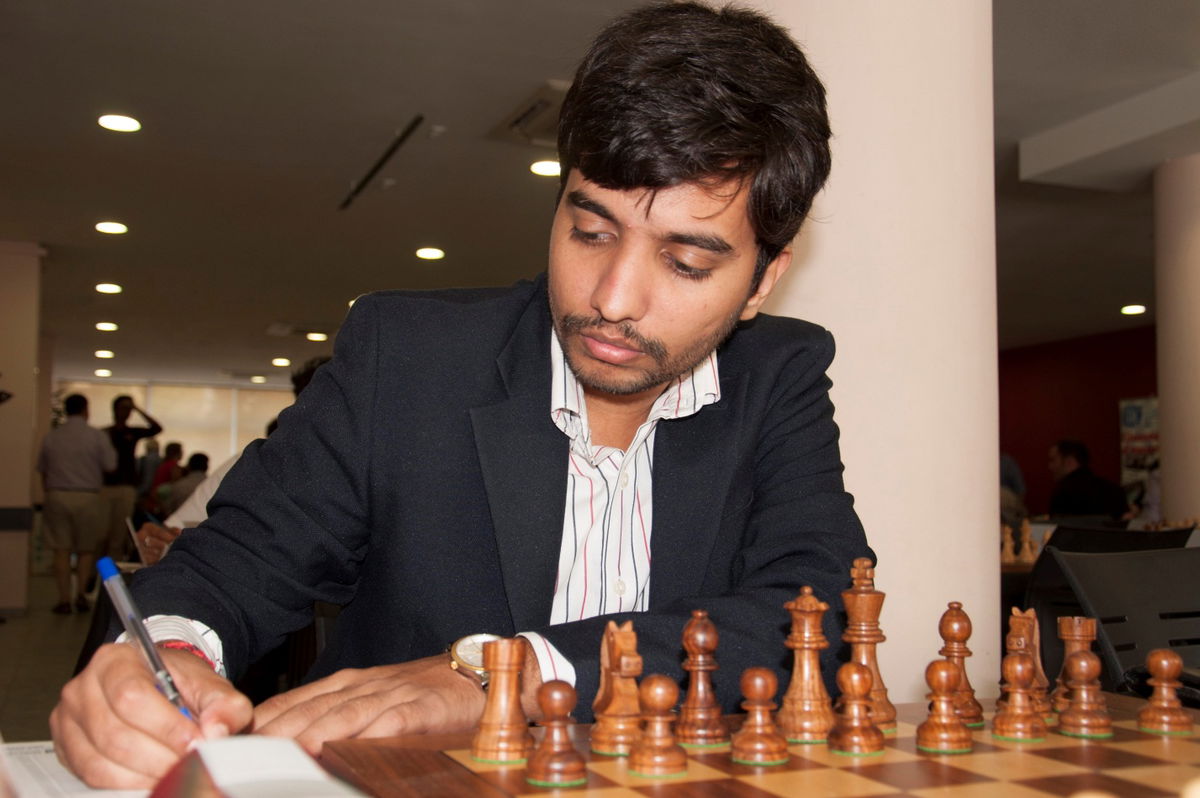
Himanshu Sharma, Indian GM and one of Shivananda's closest friends: " Shivananda...I used to called him NANDA - Khuda Ka Banda! (laughs) His game is always filled with many tactical nuances and enriches chess culture with a magical fresh air of tactics all the time. He likes to weave things during play which are difficult to foresee and his conjurer attitude inspires all those who watch his games. At one point he won many All India Open Tournaments. We were both team mates and room mates in many events. I remember his hard work before the beginning of every game and his daily routine, which involves his future opponent. He had the ability to surprise the opponent from the very beginning of the game. Of course , he was one of the strongest player in India at that time. Nowadays he has challenged himself with nurturing the talents of Karnataka. He is doing a great job in teaching also, and I am sure after some time his students will show off his magical- tactical nature of play. Wishing him and his whole team a lot of success!"
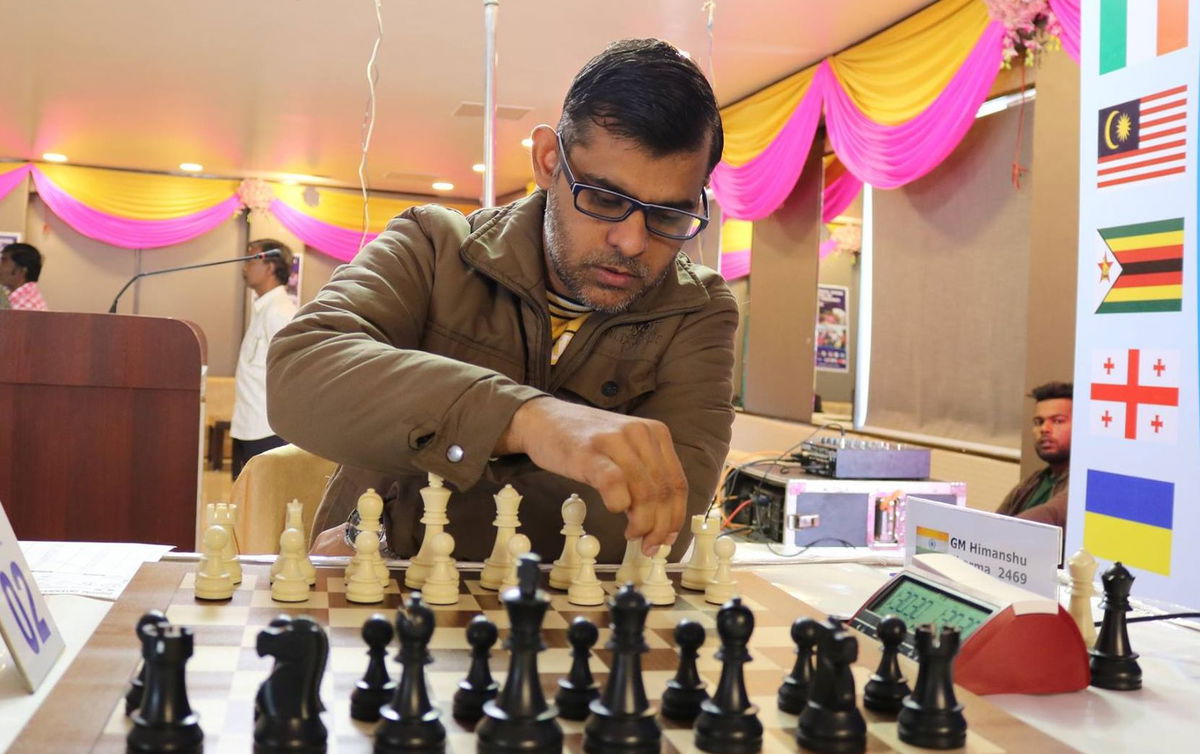
IM Sagar Shah, CEO, ChessBase India: "When I remember Shivananda, I remember a tall lanky man who walked with self confidence and dignity. I don't know why but I still remember the image of him being the top seed in a Sangli tournament where I was a youngster and he analyzing the game with his opponent after the round was over. The lights had gone off, and it was blazing hot, but it didn't affect Shivananda. He held the scoresheet in his hand like a fan and continued to analyze! He was known as the Swiss king of India when I was growing up and won several back to back blitz events. There is one other side of Shivananda which impressed me a lot. Whenever he won a tournament prize in Sangli, he would give a part of it to Late Shailesh Nerlikar and his family. I always used to wonder why Shivananda is doing that? Why is he giving a part of his prize money that he has won with hard work to someone else. It was a part of his social responsibility I imagine. These acts of kindness show what a wonderful human being Shivananda really is."
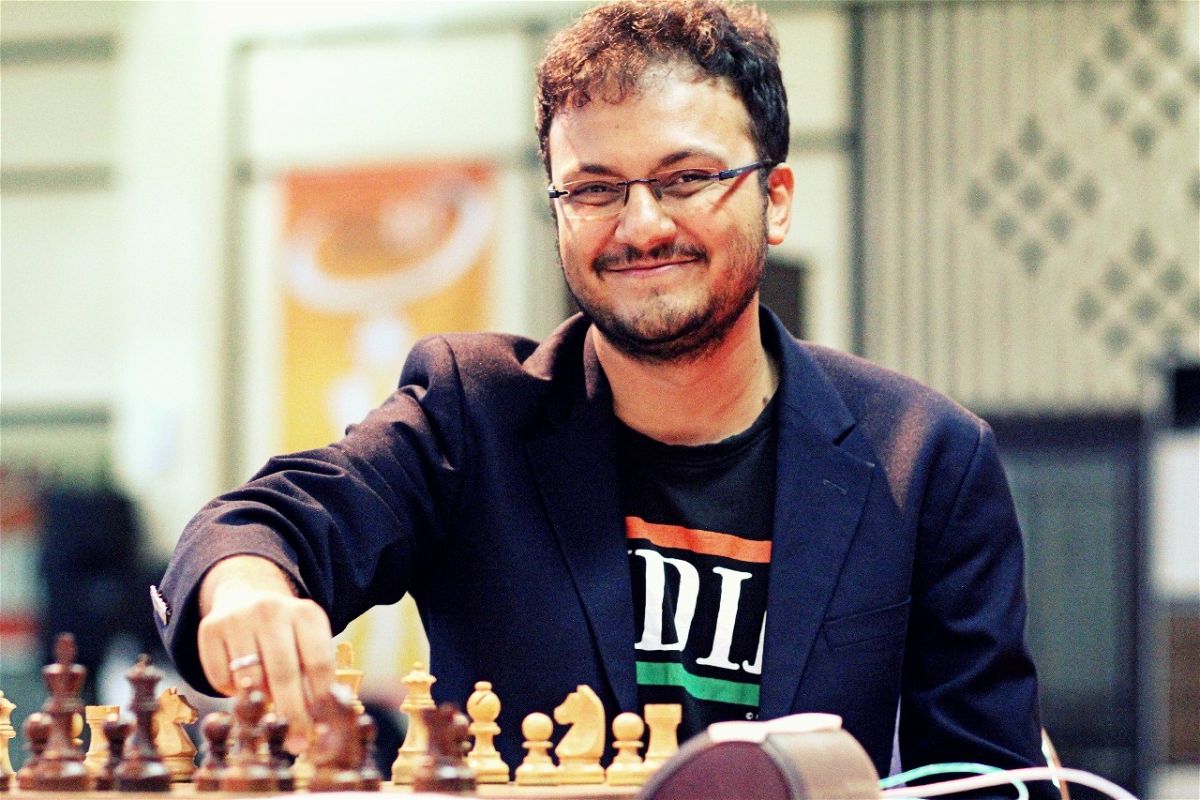
Parts two and three covering Shivananda's life will follow shortly.
About the author
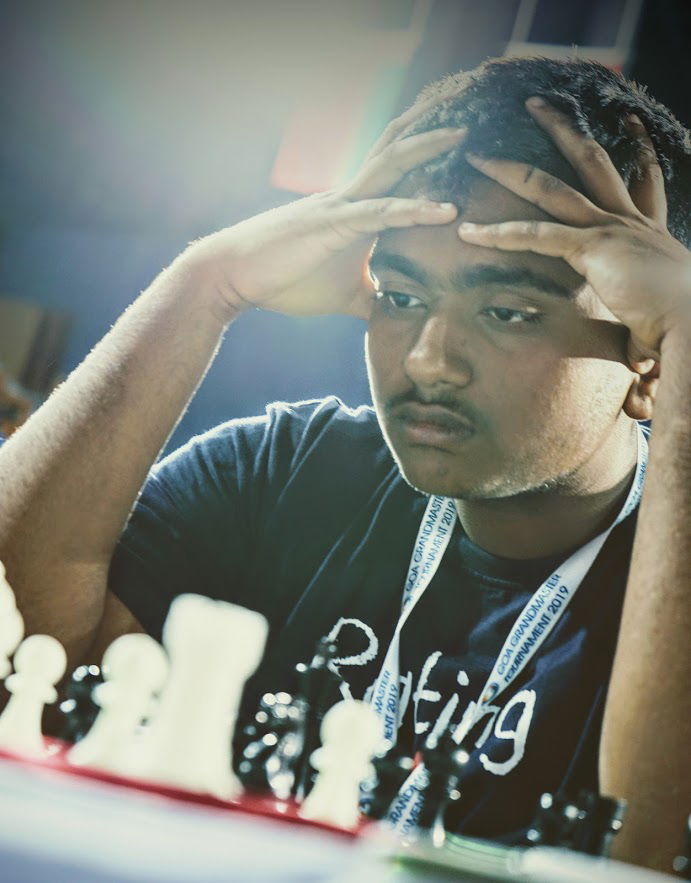
Tanmay Srinath is a young chess player from Bangalore, Karnataka, currently pursuing both chess and engineering at BMSCE Bangalore. Tanmay is also a Taekwondo Black Belt, who has represented the country in an International Tournament in Thailand. He is a big fan of Mikhail Tal and Vishy Anand, and sincerely believes in doing his bit to Power Chess in India!





